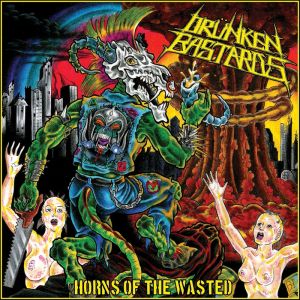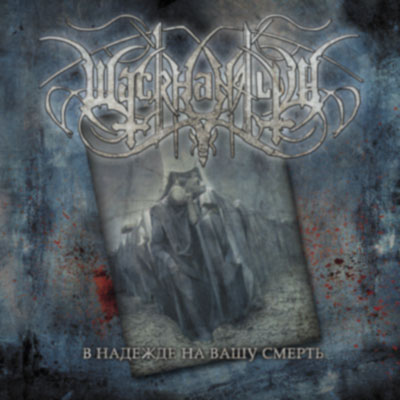Six years ago (whew...) I remember
buying Ars Diavoli's demo tape The Absence of Light, and how I
listened to it quite a bit back then, enjoying its ear-shattering
roughness combined with the melancholic melodies. Years pass and
Clausura, Vilkacis' second full-length album already, has been out a
long time by now, but I started digesting it only recently. Perhaps
my lack of enthusiasm to follow the band's activities is corollary of
the major debut Pro Nihilo Esse not impressing me properly, and
unfortunately I'm having somewhat similar thoughts on the second
effort, another album that kind of lingers in the already heard ideas.
Simply put, Clausura is depressive
black metal. A load of reverby atmosphere with guitars fluctuating
between the distorted tremolo picking and clean note plucking. Steady
drumbeats are provided by a tad too clear drum machine, and mostly in
tempos that verge on doom metal. Some exceptions do occur, like the
rather fast-paced beginning of ”Momento Inerte”, but the general
speed is slow, and fittingly so. There's no major flaws in the music
here, the only yet too severe glitch is the fact that there's nothing
really refreshing about Clausura: it's depressive black metal by the
book: funereal atmospheres, evocations of hopeslessness, the
inescapable decay of all living...
Giving this album a listen in total
darkness and in the right state of mind may, or must, result in a
more positive impression than giving it a go in the middle of all the
daily fuss. I'm too often guilty of inclining towards the latter
category, a category that does not go hand in hand with something
like Clausura. If depressive landscapes in the rather traditional
black metal way haven't bored you by now, Ars Diavoli's second album
is most likely a worthwile album to check out. And even if you find
the subgenre tiresome, there's no way of saying that Clausura was
somehow badly done. Not at all. For my taste, it is just a bit too
predictable.
3 / 5




















